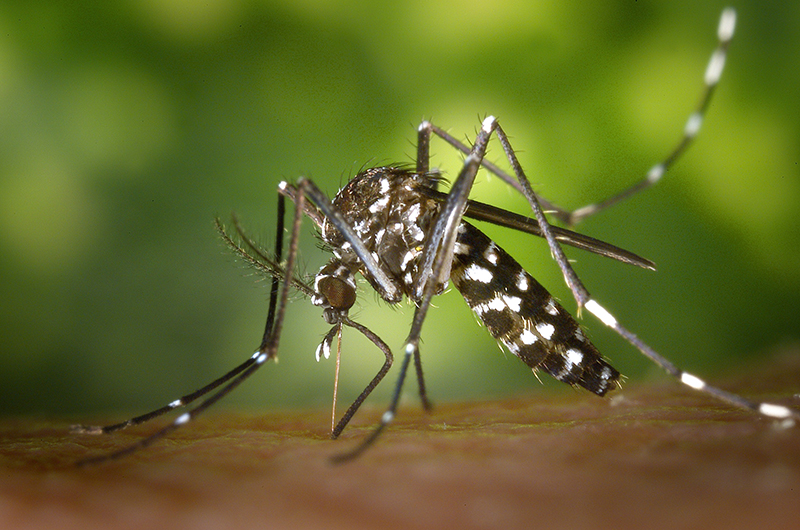
The mosquito-borne virus Zika—and its possible connection to microcephaly in infants—is generating international headlines. The Heller communications team talked with Diana Bowser, director of the MS program in global health policy and management, about how health systems can effectively respond to a growing public health crisis. Bowser has spent much of her career conducting health system analyses related to health economics, health policy and using econometric methods to evaluate health system changes in Latin America, Africa, and the United States.
How do health systems not only assess a situation like we're experiencing now, but also determine the best ways to address it?
When dealing with an outbreak, any health system assessment begins with looking at the outcome you are tracking. In this instance it would be the cases of Zika or, in the longer term, cases of microcephaly. By doing this, you’re also testing the system. It can only track cases if there’s a good surveillance system in place. If there is a weak surveillance system, cases will go undiagnosed and the disease will spread.
Since women are most likely showing up at the primary care level with reports of flu-like systems, this is where the first line of detection should begin. The harder part with Zika is the potential link with microcephaly. This additional aspect of the outbreak requires a much higher level of health system response. In the U.S., microcephaly can be detected as early as the second trimester of a pregnancy, but only with ultrasound and imaging, which is most likely not available in many primary care facilities in Latin America, especially in remote areas. This means that pregnant women who may be exposed to Zika will need referrals to higher level facilities—at that point, the health system assessment becomes more complicated because you need to assess a country’s services at not only the primary care level, but secondary and tertiary care levels as well.
The good news about Latin America is the health care systems there have come a long way in the last ten to 15 years. In addition, much of the focus of strengthening these health systems has been around improving services for mothers and children. Many Latin American countries, including Brazil, have conditional cash transfer programs that are targeted to women and children to increase demand for health and other services. For example, the program in Brazil is called Bolsa Familia. There is another one in Mexico called Oportunidades and one in Colombia called Familias en Accion. These are investments that will help the health systems in these countries be more equipped and prepared to address an outbreak like Zika more quickly.
Many people who are infected with Zika don't experience symptoms or feel sick at first. How can a health system respond to a spreading virus when it's unclear just how much that virus has spread?
This is why it is important to incorporate prevention activities into any health system assessment. While the systems may be mild and hard to detect, the population that is most worrisome is pregnant women. The way to respond to the spreading virus in infected areas is to follow the prevention advice of governments and the World Health Organization, especially if you are pregnant or there is a chance you are pregnant. These recommendations currently include avoiding contact with the mosquito carrying the virus by wearing repellent and staying indoors. The bottom line is that health systems in these countries cannot wait to respond but should be sending out messages and warnings about avoiding infection, and this needs to happen sooner rather than later.
The World Health Organizations has called the Zika virus a global health emergency, which has obviously generated headlines. When responding to an evolving public health situation like this, how important is it for health officials to explain the severity of the situation without creating public panic over it?
This is definitely a fine line that governments and leaders have to walk. However, I do think the WHO is responding to criticisms of their slow response to the Ebola outbreak. Even if there is a bit of a “scare” tactic going on at this point, it is better to be over-protective and keep the case count lower than have a slow response and then be dealing with an expensive and out-of-control epidemic later.
This isn't the first Zika outbreak--in 2007 there were more than 100 confirmed cases of it in Micronesia and within the last five years there have been cases in popular tourist destinations like Tahiti and Bora Bora. It's also been in Africa for decades. So, why all of the attention on it now? Is it the possible connection with microcephaly in infants or are there other factors at work?
There are two reasons for the attention. First, as mentioned above, the WHO came under very severe criticism for the lack of response to the Ebola outbreak in 2014. They do not want to make the same mistakes they made in 2014 and need to stay on top of the outbreak. The second reason is just as you suggest: any outbreak or health emergency that involves moms and kids is always going to generate attention.
Anything else you'd like to add about Zika from a health systems perspective?
It seems that these “outbreaks” are going to become more frequent, and how countries respond and control them will depend almost entirely on their health systems, the services available and the surveillance in place. I am hopeful that with the earlier WHO response and with some of the systems that have been previously developed in Latin America we will have some positive lessons coming out of this Zika outbreak.
